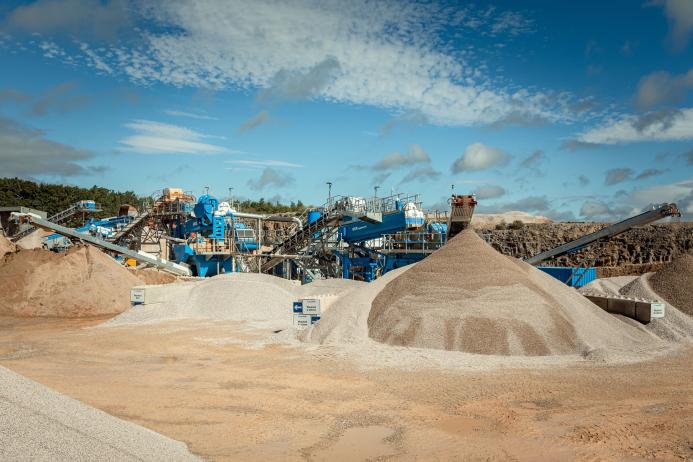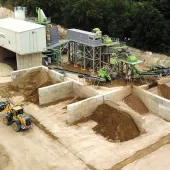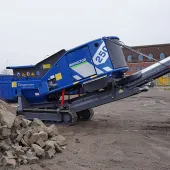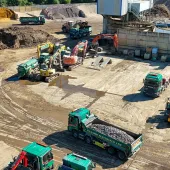CDE encourage quarry operators to reappraise waste by-products
Materials washing specialist says waste stockpiles are key to unlocking full potential of an operation
AS the rate of global resource extraction continues to accelerate, finite natural materials continue to deplete, and barriers to gaining approval for new mineral extraction sites mount, CDE are calling for materials producers to reappraise their waste streams to get more value from their operations.
Sand and aggregates are among the most important resources for everyday life. They are needed for the construction of new buildings, roads, and pathways. Mineral products are indispensable resources for modern living, yet they are finite and require careful resource management.
Mining and quarrying operations generate significant volumes of waste by-products as part of their process but within these waste streams, there is an opportunity to repurpose the overburden, scalpings, and crushed rock fines that come as part of the process.
Where overburden concerns the clay-bound top layers of soil and subsoil above bedrock that are removed as quarries and mines expand, scalpings are the contaminated stones removed during primary screening in dry processing plants, and crushed rock fines are a by-product of the dry rock crushing process, which typically produces a low-value product with very high fines content.
The traditional approach to managing waste by-products such as overburden, scalpings, and crushed rock fines is to stockpile them on site, which is generally symptomatic of the limitations of the technology employed on site at the time.
CDE’s patented washing and processing allows quarry operators to transform unwanted waste materials that may have been sent to landfill into high-value sand and aggregate products that can be sold straight off the belt.
Longcliffe Quarries, based in Derbyshire, had historically discarded its clay-bound limestone scalpings, but feasibility studies and material testing found a market for products recovered from this waste stream. Having commissioned a 220 tonnes/h CDE wet-processing plant, up to six different products are being extracted from clay-contaminated material for Longcliffe Quarries, which is creating new, high-value revenue streams and helping reduce net emissions on site.
According to CDE, conventional dry processing equipment has its drawbacks with quarry waste by-products, which typically have high clay and fines content, but advances in washing technology have shown to overcome these challenges to produce high-quality sand and aggregates and maximize product yield from quarry waste.
Recently, CDE designed and engineered such a solution to support Peter Fitzpatrick Ltd, a quarrying and contracting company based in Northern Ireland, to reprocess excess crushed rock fines and blinding material at their quarry in Newry. Processing up to 130tonne/h of quarry waste overburden, the CDE wash plant allows the firm to produce five saleable products: concrete sand; 6mm grit; 10mm; 20mm; and +20mm aggregate.
Commenting on the value of repurposing waste streams, William Melanophy, CDE’s head of business development for the UK and Ireland, said: ‘Too often these masses are categorized as ‘waste’ or low-value material when they possess significant potential to quarry operators. When processed with the right technology, most of these seemingly low-quality by-products can be marketed quite profitably.
‘It is crucial we start to maximize the available reserves and tackle more complex material. CDE is committed to providing solutions that address the industry’s waste burden in a bid to meet the everyday needs of our customers.’










